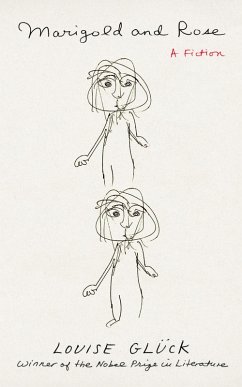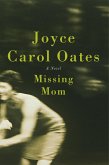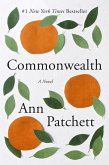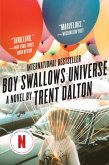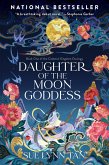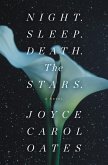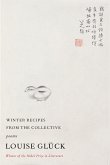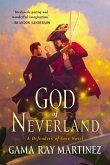Here are the elements you'd expect to find in a story of infant twins: Father and Mother, Grandmother and Other Grandmother, bath time and naptime-but more than that, Marigold and Rose is an investigation of the great mystery of language and of time itself, of what is and what has been and what will be. "Outside the playpen there were day and night. What did they add up to? Time was what they added up to. Rain arrived, then snow." The twins learn to climb stairs, they regard each other like criminals through the bars of their cribs, they begin to speak. "It was evening. Rose was smiling placidly in the bathtub playing with the squirting elephant, which, according to Mother, represented patience, strength, loyalty and wisdom. How does she do it, Marigold thought, knowing what we know."
Simultaneously sad and funny, and shot through with a sense of stoic wonder, this small miracle of a book, following thirteen books of poetry and two collections of essays, is unlike anything Glück has written, while at the same time it is inevitable, transcendent.
Dieser Download kann aus rechtlichen Gründen nur mit Rechnungsadresse in A, B, BG, CY, CZ, D, DK, EW, E, FIN, F, GR, H, IRL, I, LT, L, LR, M, NL, PL, P, R, S, SLO, SK ausgeliefert werden.

Der letzte Text von Louise Glück
Was hat es zu bedeuten, wenn eine achtzigjährige Schriftstellerin eine Erzählung über zwei Babys veröffentlicht? Was hat die Literaturnobelpreisträgerin Louise Glück bewegt, kurz vor ihrem Tod ein Prosastück über Zwillingsschwestern zu schreiben, die nicht einmal ein Jahr alt sind? Ist das die Kühnheit des Alters? Oder steckt dahinter die Gewissheit, Tod und Geburt seien nur durch einen schmalen, wenn auch unergründlichen Spalt voneinander getrennt, Greis und Säugling sich also näher, als man gemeinhin denkt?
Vielleicht ist die Antwort simpler und bar jeder metaphysischen Implikation, denn augenscheinlich geht es Louise Glück darum, in den Schwestern Marigold und Rose (so auch der Titel der Erzählung) zwei gegensätzliche Charaktere zu schildern, zwei Prinzipien, mit der Welt in Beziehung zu treten: Da wäre einmal Marigold, die naturgemäß weder lesen noch schreiben, ja nicht einmal sprechen kann, innerlich aber schon an einem Buch arbeitet; sie ist diejenige der beiden, die sich ihre Welt im Kopf erschafft, die in Bildern denkt, die überlegt, "das Sprechen einfach zu überspringen und auf das Schreiben zu warten". Rose dagegen nimmt die Welt, wie sie ist, für sie liegt kein Geheimnis in den Dingen, sie fragt sich nicht, worin der Unterschied besteht, wenn die Großmutter in den Himmel geht und der Vater zur Arbeit.
Der Verdacht liegt also nahe, dass Louise Glück mit dieser Erzählung gegen Ende ihres Lebens noch einmal Bilanz ziehen und sich mit ihrer prekären Stellung als Schriftstellerin auseinandersetzen wollte. Einerseits den Anforderungen des alltäglichen Lebens zu entsprechen, all die Dinge zu tun, die man, will man nicht verrückt werden, unhinterfragt tun muss: aufstehen, einkaufen, kochen, Geld verdienen, gesellig sein - kurz, zu funktionieren. Andererseits in einer Welt der Wörter zu leben, einer Welt zweiter Ordnung, einer Welt, die die eigentliche Welt des Hier und Jetzt infrage stellt, einer Welt des Traums: "Marigold träumte einen Traum. In dem Traum war sie ein Einzelkind, und Rose war verschwunden. Vielleicht hatte sie beschlossen, nicht auf die Welt zu kommen. Die schöne, liebenswerte Rose. Denn wenn sie auf die Welt gekommen wäre, hätte sie bestimmt jemandem gehört, vermutlich Mutter und Vater. Sie war ein Baby, das alle Leute für sich beanspruchen und dann schnell mit nach Hause nehmen würden, bevor die anderen Eltern auch nur einen Blick darauf werfen konnten. So ein Baby war Marigold nicht. Marigold war schwierig. Tja, das ganze Leben ist schwierig, dachte sie."
Die Idee, diesem Zwiespalt nachzuspüren, indem man ihn in die Innenleben von präverbalen Zwillingsschwestern verlegt, besitzt durchaus Charme. Durch die naturgemäß innige Verbundenheit Marigolds und Roses wird er nicht als Widerstreit inszeniert, kein Schwarz-Weiß, Plus oder Minus. Man wird als Leser oder Leserin nicht gedrängt, sich für eine Seite zu entscheiden. Das Bild von den zwei Herzen in einer Brust trifft es dabei nicht ganz, denn es geht vor allem um Köpfe, um unterschiedliche Veranlagungen, die sich jedoch nicht vom Ausschluss der jeweils anderen nähren: Marigold lebt zugleich in der Welt sozialer Übereinkünfte und wird sich damit arrangieren; Rose weiß als Zwillingsschwester, dass für Marigold die Welt nicht an den Gittern des Laufstalls endet, und wird auch diese, ihr unzugängliche Welt als Realität akzeptieren.
Kurze Kapitel, viele Absätze: Form und Sprache des kaum fünfzigseitigen, locker gesetzten Textes wirken auf den ersten Blick, als würde es sich um eine Erzählung für Kinder handeln. Die Widmung "Für Emmy und Lizzy" könnte darauf hindeuten, dass sie auch für solche, womöglich die Enkelkinder der Autorin, geschrieben wurde. Einjährigen aber wird man sie sicher nicht vorlesen, wenngleich die Vorstellung von Kindern, die, ohne über Worte zu verfügen, in Worten denken, dem Leser und der Leserin eine gewisse logische Flexibilität und kindliche Offenheit abverlangt. Nicht zuletzt der leise Humor ist eher an Erwachsene adressiert. Tatsächlich hält nach dem Tod der Großmutter selbst Rose die Erklärung der Mutter, der Himmel wäre ein wunderschöner, ferner Ort, wo geliebte Menschen glücklich lebten, für einigermaßen zweifelhaft. TOBIAS LEHMKUHL
Louise Glück:
"Marigold und Rose".
Aus dem amerikanischen Englisch von Eva Bonné. Luchterhand
Literaturverlag,
München 2024.
64 S., geb., 18,- Euro.
Alle Rechte vorbehalten. © Frankfurter Allgemeine Zeitung GmbH, Frankfurt am Main.
"[Marigold and Rose] exists in a liminal zone between poetry and prose . . . Glück, in shrinking the world to the size of a pair of blankets inside cribs, manages to gently pack her narrative with feeling . . . It addresses, in larval and thus primal form, many of the concerns of Glück's poetry. As she wrote in a poem titled 'Nostos': 'We look at the world once, in childhood. The rest is memory.'" -Dwight Garner, The New York Times
"Glück's emotional intelligence never surrenders to cosy consolation, yet the writing remains exquisitely beautiful . . . Marigold and Rose can be devoured in a single sitting, and that's probably the best way to enter its tonal world, which is strangely hypnotic, in part because the mood never swings to violent intensity, and in part because of the orderly rhythms of Glück's prose . . . [Marigold and Rose] brilliantly evokes the timelessness of early childhood, and indeed of babyhood, before a child has even adapted to her own circadian rhythms. There is that sense of suspension, of living without past or future, which is the superpower of infancy." -Fiona Sampson, The Guardian
"Alongside an exploration of the dichotomies that bind the girls together are meditations on many of Glück's familiar preoccupations: halves and wholes, familial inheritance, time's passage, the psychic power of words. The innocence of the girls' observations, bearing an infant clarity, pare many of the book's subjects down to a revealing frankness." -The New Yorker
"Stunningly imaginative, incisive, sly, and hilarious . . . Concentrating the depth, rigor, and complexity of her poems into a delectably renegade, mordant, and bravura prose performance, Glück tracks the love and rivalry between these little philosophers . . . Succinctly and provocatively illuminates the vagaries of human consciousness, the bewitchment of language, and the mysterious assertion of the self." -Donna Seaman, Booklist
"[Marigold and Rose] centers on twin sisters in their first year of life, unfolding like a fable as they slowly come to grips with time, safety, happiness, loss, and the vagaries of communication . . . Reed-slim, it teems with small wisdoms and lilts like a lullaby." -Marley Marius, Vogue
"The 2020 Nobel Prize-winning poet here pens a gorgeous 52-page work of fiction that is as magical as a fairy tale . . . This tiny gem of a book packs a gut-wrenching punch, ruminating on family, the passage of time, and the power of words." -Oprah Daily

